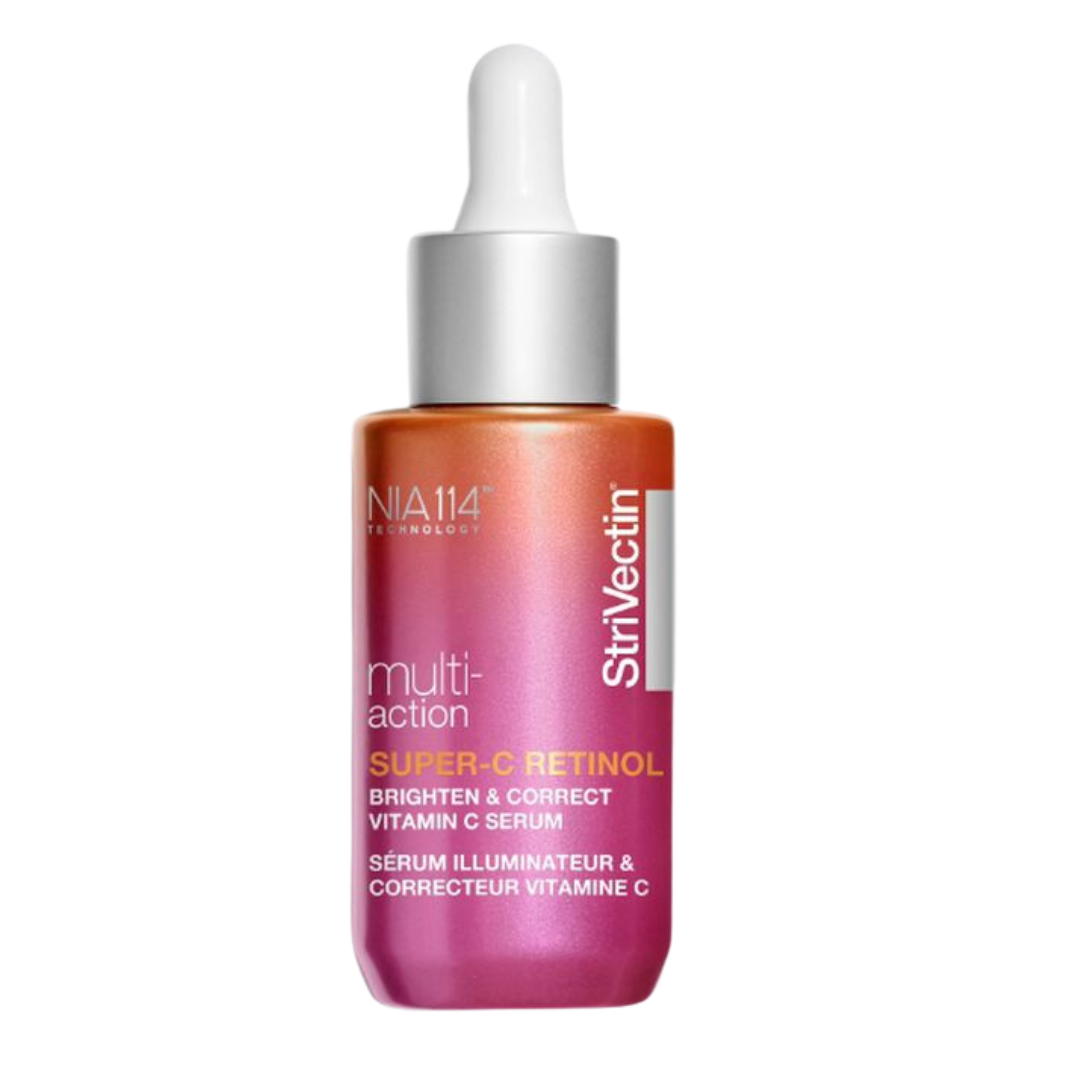Vitamin C, all you need to glow!
Vitamin C ( aka L-Ascorbic Acid) has re-entered the chat as one of the most researched ingredients in the skincare world with tons of scientific evidence on why it’s so fantastic for the health and appearance of skin. It’s an excellent glow boosting choice for Black skin (especially in the winter months) that can quickly look dull and grey. It’s always been a favourite for us so here’s a quick run through why it deserves a spot in your skincare routine.
SO, WHAT IS IT?
Vitamin C is essentially an antioxidant that is able to neutralise free radicals (e.g. environmental pollutants, UV damage, smoking) that damage our skin cells and lead to premature ageing. It helps the skin to regenerate efficiently, stay healthy and younger looking for longer.
Other reasons you should include a Vitamin C in your skincare:
speeds up the production of collagen, which is the internal scaffolding in our skin that keeps it plump and firm.
contributes to fading excess melanin that can lead to hyperpigmentation and dark marks. For more definitive hyperpigmentation options for Black skin check this out >>>
brightens the overall skin tone and boosts the all important radiance and glow.
HOW TO USE IT?
Vitamin C comes in many forms from cleansers and serums to moisturisers and masks which makes it easy to use and very accessible. There’s literally an option for everyone and we love that for us.
However, in case you need reminding, serums (our preferred Vitamin C product!) go on to the skin after cleansing, followed by heavier textured products such as lotion or cream moisturisers. Sunscreen is always the last step of your skincare, applied at least fifteen minutes before make up.
You can include Vitamin C in your night time routine but because it’s such a fantastic companion for sunscreen, using it in your morning routine will have infinitely more benefits for your skin.
WHO CAN USE VITAMIN C?
Virtually everyone can safely use Vitamin C, including those with breakout prone skin. Like anything in skincare, there will always be some exceptions and if you’re someone who reacts to everything, a patch test is highly advised.
Vitamin C can also be used around the eyes to brighten and refresh the delicate skin.
WHEN NOT TO USE VITAMIN C
Like all skincare ingredients there is chance of Vitamin C not agreeing with you if your skin is particularly sensitive or your skin barrier is compromised. Fret not, there are other types of antioxidants such as green tea extract, resveratrol, ferulic acid, vitamin E or even niaciamide that can be incorporated into your skincare instead.
Vitamin C can also quickly degrade, oxidise and turn a brown murky colour if left open, stored incorrectly or in direct sunlight. This is especially true for pre L-Ascorbic Acid. This is why it’s a better option to chose Vitamin C housed in dark opaque containers and if possible airless pumps.
If your Vitamin C has gone off, sadly it’s time to bin it as it won’t be effective and you could irritate your skin
CAN I USE VITAMIN C WITH OTHER SKINCARE INGREDIENTS?
Yes, for most people Vitamin C plays nicely with other ingredients in their skincare routines like retinol or even glycolic acid. However, if you are new to using it or have quite sensitive skin, do patch test first and introduce Vitamin C slowly into your regimen.
It’s quite common to see Vitamin C actually paired with other ingredients in the same formula - be it retinol or other pigmentation products. These supercharged serums get a thumbs up from us and they are absolutely fine to use and may even help shorten your skincare routine.
DO YOU NEED TO USE PURE VITAMIN C?
In some circles, the preference is for pure Vitamin C at concentrations up to a maximum 20%. We think this can often be too harsh for most people, especially those with sensitive skin, so don’t turn your nose up at derivative Vitamin C like tetrahexyldecyl ascorbate (THD), magnesium ascorbyl phosphate, and methylsilanol ascorbate because they tend to be way more pleasant with less potential for irritation.
















